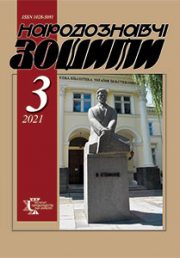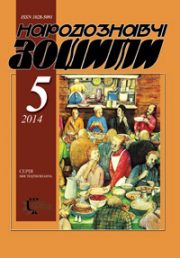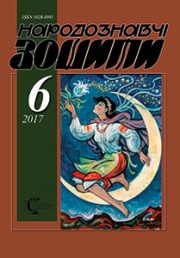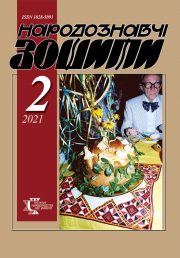The Ethnology Notebooks. 2018, 3 (141), 550–576
UDK 123.1:124.2]:159.947.2
DOI https://doi.org/10.15407/nz2018.03.550
Kis Roman Yaroslavovych, Senior Researcher at the Institute of Ethnology
of the National Academy of Sciences of Ukraine,
departmeny of social anthropology.
Svobody Avenue 15, 79000, Lviv, Ukraine.
Contacts: Tel. (067)7117846; e-mail: Kholeryk@gmail.com
Abstrakt. Two basic features (according to Hannah Arendt’s «Between the Past and the Future…») are essential for a human being: 1) to be a free individual (a possibility to make a free choice and a possibility to overcome oneself and the circumstances); to initiate something (so called initium); 2) to be an agent — to act independently using one’s own knowledge, experience (including the capital of the senses) and some other instruments of one’s of activities. The author adds one more basic feature: to be free in generating new senses, new constellations of senses, and the new horizons of utmost-senses (goals, expectations, high values and new moral conventions and prescriptions). At the same time H. Arendt argues against a simplification of the problem of so called free will. This paradox concerns the fact that a human’s will (and self-motivation) may be considered not as an instrument of free choice but as a tool of a direct self-compulsion. To say to oneself «NO» and just to block free desires and inner impulses is not quite a free process. The true freedom and active search for freedom are impossible besides a readiness for an inner freedom. A formal freedom (in legislative terms) may be inefficient if a man does not possess strength for spiritual resistance and a potentiality of strong senses. A self-identity, which is closely related with self-determination in one’s freedom, may be sufficiently strong and efficient only if based on existent or desired utmost-senses. The major areas of freedom’s self-actualization are creativity and a search for utmost senses.
Keywords: freedom, free choice, identity, creativity, configurations of senses, new meanings, boundary senses.
Received 23.02.2018







